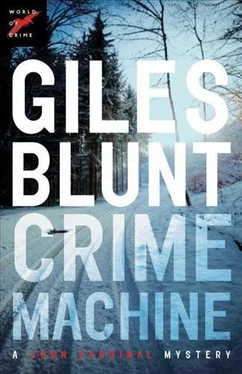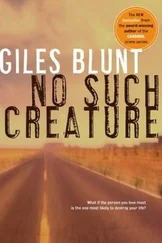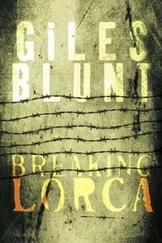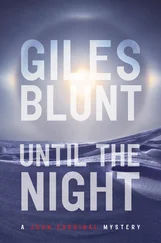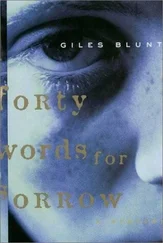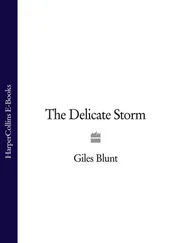Giles Blunt - Crime Machine
Здесь есть возможность читать онлайн «Giles Blunt - Crime Machine» весь текст электронной книги совершенно бесплатно (целиком полную версию без сокращений). В некоторых случаях можно слушать аудио, скачать через торрент в формате fb2 и присутствует краткое содержание. Жанр: Полицейский детектив, на английском языке. Описание произведения, (предисловие) а так же отзывы посетителей доступны на портале библиотеки ЛибКат.
- Название:Crime Machine
- Автор:
- Жанр:
- Год:неизвестен
- ISBN:нет данных
- Рейтинг книги:3 / 5. Голосов: 1
-
Избранное:Добавить в избранное
- Отзывы:
-
Ваша оценка:
- 60
- 1
- 2
- 3
- 4
- 5
Crime Machine: краткое содержание, описание и аннотация
Предлагаем к чтению аннотацию, описание, краткое содержание или предисловие (зависит от того, что написал сам автор книги «Crime Machine»). Если вы не нашли необходимую информацию о книге — напишите в комментариях, мы постараемся отыскать её.
Crime Machine — читать онлайн бесплатно полную книгу (весь текст) целиком
Ниже представлен текст книги, разбитый по страницам. Система сохранения места последней прочитанной страницы, позволяет с удобством читать онлайн бесплатно книгу «Crime Machine», без необходимости каждый раз заново искать на чём Вы остановились. Поставьте закладку, и сможете в любой момент перейти на страницу, на которой закончили чтение.
Интервал:
Закладка:
“It makes you reasonable. Cool under fire. Literally. If he shot people, they’re shot and there’s nothing you can do about it, Sam. But you’ve got to think of my situation here. How are you going to explain why you were in that house? How would you even know about that house without bringing me into it? And once my name comes out, that’s it. It’s the kind of damage, once you do it, you can’t undo it.”
Sam thought about that. She ran a hand through her hair and encountered a V of pine needles. “I could just call them anonymously. I could call from a pay phone.”
“And tell them what, Sam?”
“I was out in the area and I heard shots fired and thought I should report it.”
“And you think they’re going to go out there ten hours later on the chance that someone may still be firing a gun on the tip of Island Road? They’re not going to do anything with information like that. You’d have to tell them what you told me-that you heard a couple of people and then there were shots and you’re pretty sure they’re dead. That’ll get ’em out there. And they’re gonna know, what with the isolation of the house and everything, that you were actually there in the house, and they are going to turn over every piece of evidence known to man in order to find you. They’re going to find our fingerprints, they’re going to find who knows what-all out there. You can’t do it, Sam.”
“I don’t have a criminal record and neither do you-fingerprints aren’t going to lead them anywhere.”
“Oh, God.”
“What?”
“If there’s been an actual murder out there, they’re going to be questioning me anyway. I have a key to the place. I told you, Sam, I’m not a good liar.”
“You could tell them the truth. You were out there some other day. You wanted to check the house for some reason, and that’s it-you didn’t see or hear anything suspicious. And that’s the truth, so you wouldn’t have to be nervous. You don’t have to mention me.”
“Sam, don’t call the cops. Do not phone them. I can’t be brought into this. Neither can you. I gotta go. I gotta think about this. Don’t do anything, Sam.”
“I lost my cellphone, and what if he has it? What if he saw my licence plate? What if he thinks I can identify him and he comes after me?”
“If he was that desperate to get you, he could have done it last night. He could have chased you in his car, right? But he didn’t. Because he knows you can’t identify a damn thing.”
“What if he tries to kill me to play it safe? Can you even believe I’m saying that? This is for real, Randall.”
“I gotta go. Don’t call me. If the police start checking phone records, everything’s gonna go to hell. And we better not see each other for a while.”
“Oh, don’t say that.”
“Just to be safe-we don’t want to ruin what we have, do we? This precious thing that we have together?”
“No.”
“Okay, then. I’ll call you soon.”
“I love you, Randall. I need to see you.”
“Me too. So much. I gotta go.”
3
After dinner, John Cardinal sat at the kitchen table and only realized after some time that he’d been staring at his own reflection in the window. He got up and turned off the light and sat back down. His apartment building was on a ridge overlooking the north bay of Lake Nipissing and now, with the lights off, the frozen surface of the lake took form in the glass. The moon, not quite full, was bright enough to wash out most of the stars and lit a wide off-white track across the snow to Cardinal’s window. The tops of trees that lined the beach waved in the breeze, but he couldn’t hear them through the double glazing.
Mealtimes were still difficult. For the first six months after Catherine died, Cardinal had eaten in front of the television. He didn’t like television, but it was better than simply staring at the empty place where Catherine used to sit chatting to him about her students or her latest photography project. Finally he had come to find it intolerable, and he put the little house by Trout Lake up for sale-the house he had lived in with Catherine and his daughter for nearly twenty years. For some reason he had decided that an apartment would suit him better at this broken place in his life. An apartment was un-Catherine. It was un-Cardinal, come to that. At one time he might have thought of himself as an urban type, back when he was living in Toronto decades ago, but not anymore. Now he was just a man whose wife had died and who had trouble seeing much value in his leftover life.
He turned the light back on and reached for the top file of a stack of manila folders foxed and acidic with age. Under the rubber band that held the folder together was a memo from the chief exhorting the investigations department to dig deep in their efforts to clear cold cases. There was nothing like clearing up an ancient mystery or bringing an elusive criminal to justice to restore the public’s faith in their local police. They were to seek especially opportunities to apply technologies, databases and techniques that had been unknown or unavailable to the original investigation. Whenever he was seeking to provoke enthusiasm where none existed, which was often, Chief R. J. Kendall was prone to oratory. We must see ourselves as visitors from the future, travelling back to help our stymied colleagues in the past.
R.J. had the politician’s knack of presenting a policy he had been forced to adopt as the inevitable result of his personal devotion to good works. In this case, the provocation had been the release of a national report on the clearance rates of the various local forces. Usually these were restricted to larger cities with populations above one hundred thousand. This year, some irritating bureaucrat had produced a comparison of smaller cities, and although one could offer fourteen reasons why the results were not particularly meaningful, that did nothing to assuage Chief Kendall’s outrage that the Algonquin Bay police service had been ranked just slightly above the median. The chief didn’t mention it specifically, but Cardinal knew that what really rankled with him was that Parry Sound and Sudbury, two cities of similar size, demographics and geography, were far ahead when results were averaged out over forty years. It looked bad, side by side, and even The Globe and Mail had mentioned it as an interesting anomaly.
Thus the Scriver case, all twenty pounds of it, on Cardinal’s kitchen table. D.S. Chouinard had had the six detectives in CID draw three cold cases each from a hat and Cardinal had drawn Oldham (probable but unprovable murder by spouse), Sloane (missing octogenarian, probable misadventure) and Scriver. When the name was read out, Cardinal’s colleagues had not made the slightest attempt to suppress their laughter.
Delorme, by contrast, had drawn Lonnie Laird, a missing teenager who had always been presumed but never proved to be a victim of Toronto serial killer Laurence Knapschaeffer. It took Delorme exactly one trip to the Penetanguishene hospital for the criminally insane and a forty-five-minute interview with Knapschaeffer to get a signed confession from him-possibly because Delorme was a first-class investigator, or possibly (and this was the explanation Ian McLeod liked) for the simple reason that Knapschaeffer had never before had the elective attention of such a good-looking female.
Scriver was the oldest and most investigated and re-investigated case in the history of the Algonquin Bay police and their colleagues in the joint effort, the Ontario Provincial Police. It had taken place many years before Cardinal had joined the force. There was no one left on staff who had been around at the time. All of the investigators were long retired, some long deceased.
Читать дальшеИнтервал:
Закладка:
Похожие книги на «Crime Machine»
Представляем Вашему вниманию похожие книги на «Crime Machine» списком для выбора. Мы отобрали схожую по названию и смыслу литературу в надежде предоставить читателям больше вариантов отыскать новые, интересные, ещё непрочитанные произведения.
Обсуждение, отзывы о книге «Crime Machine» и просто собственные мнения читателей. Оставьте ваши комментарии, напишите, что Вы думаете о произведении, его смысле или главных героях. Укажите что конкретно понравилось, а что нет, и почему Вы так считаете.
